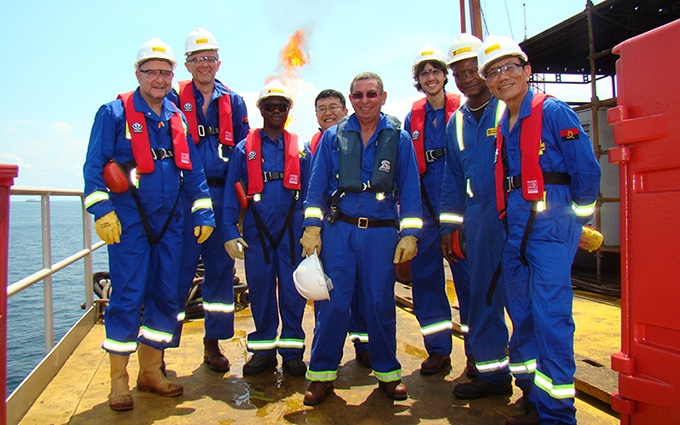Dept. of Resource Policy and Management
Dept. of Resource Policy and Management
Click here to visit our website!To foster work-ready resource specialists to take important roles in the global arena

In the Department of Resource Policy and Management, students acquire deep insights into law, politics, economics and international cooperation as they relate to natural resources. These essential insights are further refined by incorporating contextual information, like culture, history, geography and religion when considering resource locations.
The Department provides a unique curriculum, designed to train future professionals that will solve energy and mineral-related problems and environmental issues from angles of social sciences and humanities. After establishing a solid foundational knowledgebase in resources in both Japanese and English, students build upon their understanding using perspectives developed in the interdisciplinary sciences all taught in English, to work internationally as resource-focused and environment-oriented professionals. The curriculum includes the Resource Sciences Fieldwork Abroad, a three to four week program, in which students gain hands-on experience in the best practices in resource exploration, development and management outside Japan. As a truly international department, in the last eight years, this Department has accepted international students from Vietnam, Malaysia, Mongolia and China, and has sent Japanese students to get them to pursue their independent academic interests in Taiwan, the Philippines, Malaysia, Indonesia, Iran, Germany, Poland, Finland, New Zealand, Kenya, Botswana and USA.
By studying natural resources, including materials, water and land, through interdisciplinary points of view, students will be able to better understand complex world affairs surrounding resource policy and management and gain the skills necessary to handle global issues with corporate responsibility.
Coursework explores
Political Science, International Relations and Public Policy
Studies the factors of resource conflict and the ideal way of stable resource distribution and explore sustainable resource governance.
International Cooperation
and Development Studies
Studies the impact of resources on the relationships between countries providing development assistance and countries receiving aid, as well as the ways in which local governments and autonomous authorities function.
Law and Business Management
Legal regulations such as international law and mining laws, as well as joint venture agreement and human rights in investment laws are studied to understand how they relate to resource development and business management.
Sustainable Resource Management and Area Studies
Sustainable Resource Management is studied to support community development and to ensure the long-term material basis of societies in a way that human well-being will increase at the same time as rates of resource use and environmental degradation slow down.
Mineral, Energy
and Environment Studies
Sustainable resource supply and demand are studied through economic evaluation and analysis related to energy and mineral resources development and global environmental problems.
Intercultural Communication and Cultural Anthropology
Intercultural understanding and global communication are studied in accordance with their importance in international negotiations and multi-stakeholder engagement in resource development and management.

